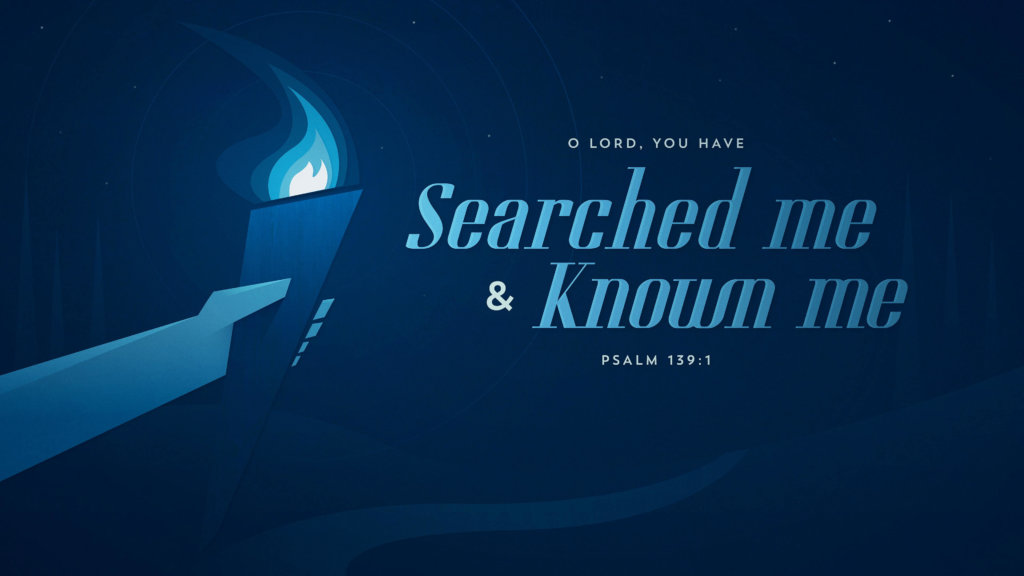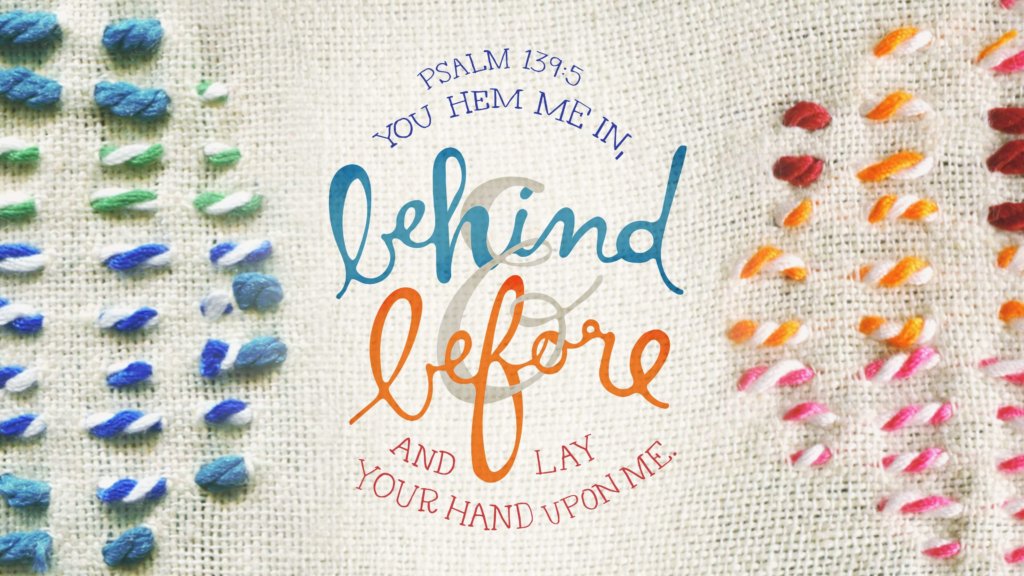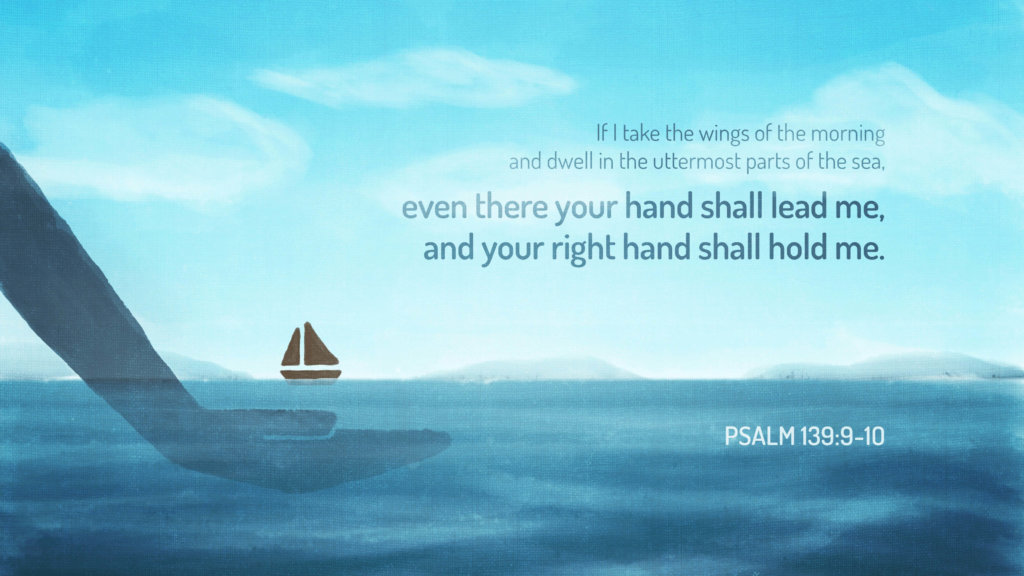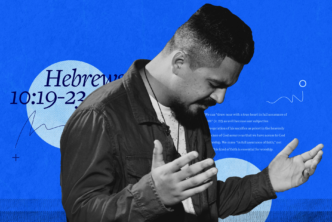The Bible is constantly revealing how big, how wise, how powerful, and how awesome God is. Psalm 139 is one of the many passages where God’s omniscience is put on display—but here, God’s omniscience is a powerful reminder that nothing can separate us from God’s love (Romans 8:38–39).
Here’s how Pastor Skip Heitzig puts it in the free Faithlife Study Bible:
“In Psalm 139, David takes the theology of ‘omniscience’ off the top shelf and brings it down to a personal level. To David, God’s omniscience is not theological or philosophical—it’s relational and personal. Notice the personal pronouns here: ‘Lord, you have searched me and known me. You know my sitting down and my rising up. You understand my thought afar off’ (Psa 139:1–2). David doesn’t say, ‘Lord, you know all things and you’ve searched all things’; instead, he says, ‘You know me, you’ve searched me.’”
Watch this visual representation of Psalm 139:1–12, then keep reading to unpack some of these verses:

“Oh Lord, You have searched me and known me!”
The beginning of Psalm 139 shows us that God’s knowledge of all things does not limit his intimate knowledge of us. He knows your place in his creation (Psalm 139:2–3)—he even knows your thoughts (Psalm 139:4). The Faithlife Study Bible says, “The psalmist states that since God already knows him so well, he does not have to come near to him and talk with him in order to know what he is thinking.” God knows exactly where you are and what you’re thinking about right now.
Psalm 139:5

“You hem me in, behind and before, and lay your hand upon me.”
The notes in the Faithlife Study Bible suggest that context is what determines if this situation is positive or negative. The word translated as “hem me in, behind and before,” can also mean “to bind,” “encircle,” or “lay siege to.” Context is what determines whether God is protecting us with his hand or disciplining us with his hand. Either way though, this verse shows that God is intimately involved in our lives. Even when God’s hand brings discipline, we know that God’s discipline ultimately serves to help, not to harm (Hebrews 12:10–11).
Psalm 139:9–10

“If I take the wings of the morning
and dwell in the uttermost parts of the sea,
even there your hand shall lead me,
and your right hand shall hold me.”
In his book The Unseen Realm, Dr. Michael Heiser says, “In the ancient world the sea was a thing of dread. It was unpredictable and untamable. It was a place upon which humans couldn’t live. Consequently, the sea was often used as a metaphor for chaos, destruction, and death. The power and chaotic unruliness of the sea was symbolized in both the Old Testament and a wide range of ancient Near Eastern literatures . . .”
Not only can God reach us from anywhere, but even in the most chaotic, unpredictable places, he can protect us (notice here that God’s right hand appears to have a positive context). In Philippians 4:6–7, Paul says God can offer us peace instead of anxiety (more on that passage here).
The Faithlife Study Bible highlights the phrase “wings of the morning,” noting that “The Septuagint interprets this as meaning the East and sees “the uttermost parts of the sea” (i.e., the far side of the Mediterranean Sea) as meaning the West.”
There is no place on earth where God’s right hand cannot reach, where his protection cannot extend.
Psalm 139:12
“even the darkness is not dark to you;
the night is bright as the day,
for darkness is as light with you.”
Verse 11 says, “If I say, ‘Surely the darkness shall cover me, and the light about me be night,'” as if the psalmist expects the darkness to “separate him from God or hide him from God’s ability to help him” (FSB). Whether this darkness is entered by choice or by chance, it is clear the psalmist knows that darkness (literal or metaphorical) cannot hide us from the creator of light. God is not hindered by darkness and he sees everything everywhere equally clearly.
Psalm 139:14

“I praise you, for I am fearfully and wonderfully made.
Wonderful are your works;
my soul knows it very well.”
The Faithlife Study Bible notes suggest that the Hebrew word we understand as “wonderfully made” is complicated, and some early manuscripts of the Septuagint read “you are wonderful,” referring to God (not us).
Either way, the source of our “wonderfulness” is God, and he is the one deserving of praise for who we are. The emphasis is on the creator, not the creation. The creation is wonderful because the creator is wonderful—not the other way around. The thing that makes us wonderful is that we were knitted together by God—he even formed our “inward parts,” our inner self (Psalm 139:13). Your identity comes from God, and the reality that you are his wonderful creation.
I’m far from perfect. There are days where I feel far from wonderful and moments when others would never dream of describing me as wonderful. But you know what? The days I feel most wonderful and the moments others are most drawn to me are the times when I’m closest to the source of wonder. It’s not who I am that makes me wonderful. It’s the one who made me. I was made in God’s image, but my flaws aren’t God’s flaws. They’re mine. I’m inherently flawed, and he’s inherently flawless. The more I identify myself with my creator and draw near to his perfection, the more my choices, actions, and instincts are influenced by him, and the less they’re influenced by me.
* * *





